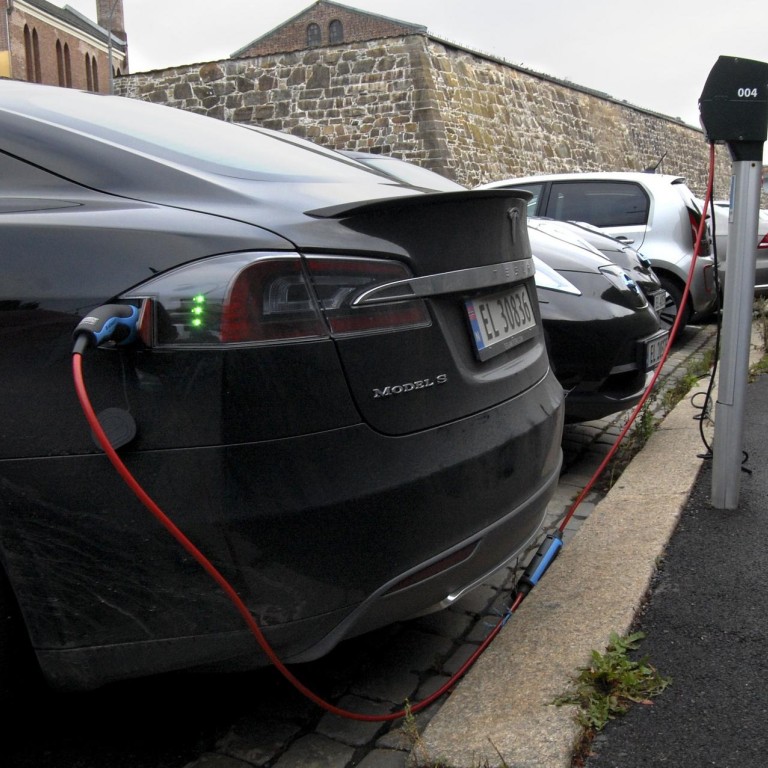
Popularity of electric cars creating problems for Norwegian officials
Ministers in Norway, a rich oil-producing country, are under increasing public pressure to reduce perks and tax breaks for booming electric car sales.
Ministers in Norway, a rich oil-producing country, are under increasing public pressure to reduce perks and tax breaks for booming electric car sales.

The cars are also exempt from urban toll payments or fees at public parking spaces, where they can recharge batteries without cost.
But above all, they are exempt from Norway's sky-high sales taxes and value-added tax.
Norway brought in the generous incentives to cut back on greenhouse gas emissions from traffic, which accounts for 10 per cent of total emissions in the Nordic nation.
The policy has been so successful that 32,000 electric cars are now on the road - by far the highest rate per capita in the world, in a country with a 5.1 million population.
"I'm a bus driver, and I want to transport my passengers as quickly as possible. So, I'd like electric cars to leave the bus lanes, where they're getting in my way," Haugstad said.
"These delays have a cost for society. Time lost by thousands of our passengers in traffic is far greater than that gained by a few dozen electric car drivers."
He said the cars could create a vicious cycle - tired of being stuck in traffic, bus users could be tempted to buy an electric car themselves, worsening the congestion problem.
Electric cars already represent 85 per cent of traffic in bus lanes during rush hour, according to a study by the Norwegian Public Roads Administration on a busy stretch of road outside Oslo.
"It's a subject we discuss very often with colleagues during lunch break. Many of them are far more aggressive and don't measure their words as much as me," Haugstad said.
No decision has been made so far, but it looks increasingly likely that authorities will take action to unclog congested areas.
In the meantime, electric car sales keep growing. From the popular Leaf by Japan's Nissan to high-end US-made Tesla S, they have accounted for 13 per cent of new car sales in Norway since the beginning of last year, far ahead of the rest of the world.
In March, the Tesla became the biggest selling car in a single month in Norway's history, despite its relatively high price.
Although a basic model costs about €60,000 (HK$611,000) , it still sounds like a bargain considering that the price including taxes would be roughly double.
The popularity of electric cars has caught the authorities off guard, as they expected to keep the incentives in place until 2017, or until they number 50,000.
At the current pace, that figure could be reached at the beginning of 2015, forcing the government to rethink its costly policy. The tax exemptions alone account for up to 4 billion kroner (HK$5 billion), according to the state's own estimates.
"We might make lowering adjustments in the future," Prime Minister Erna Solberg recently told Norwegian newspaper . "But I can promise drivers that there will still be fiscal advantages to driving an electric car."
Forty-eight per cent of the country's electric car owners said their main reason for buying them was to save money.
